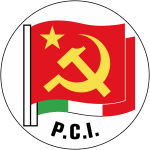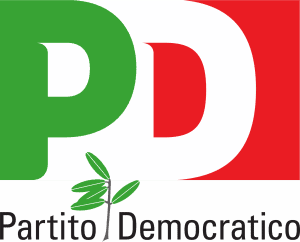
Democratic Socialism Is Nothing New, and Nothing Gentle
It’s All The Rage
Bernie, AOC, the media, and your friendly neighborhood professor may have told you that democratic socialism is a newer, kinder, gentler socialism. It is nothing like that murderous thing that ripped the world apart and killed tens of millions of innocent people in the 20th century, and surely nothing like what they have in Venezuela or Cuba. This is different. This is like Norway, Denmark, and Sweden. Heck, they seem like peaceful places, right? The media on the right will warn you endlessly that this new thing is just a fancy name for all of those murderous regimes of the past, and stop it, or we’re all going to die! Every time it has been tried, it has degraded to mass-murdering authoritarian regimes.
Both are partly right and partly wrong. It’s just not as simple as anyone makes it out to be. But I first watched this new “friendly” democratic socialism get ushered in thirty years ago. Yes, you read that right. THIRTY YEARS AGO. It was in the beautiful, lush, rolling hills of Tuscany, Italy.
In this series of articles, I will take you through what democratic socialism looks like in Europe—with deep dives into many driving topics, such as healthcare, education, housing rights, government assistance, human rights, equality, equity, unemployment, unions, central planning, immigration, racism, taxation, small business, social justice, social security, retirement, corruption, and the power of the government class that feeds off the system.
Many of these topics will discuss rights that many in the United States protest in favor of, and politicians promise will bring prosperity to the poor and middle class if democratic socialism is furthered in the United States. But Italy can provide more than three decades of recent history that show us how these policies inevitably play out in the end, and with open minds, we can easily see how they can only bring the same result anywhere they are attempted.
Those most hurt are inevitably the same people fighting for these policies.
Rewind to 1985
I am a California-raised dude from Los Angeles, and in 1985 I made the decision to move to Italy as a young adult. I was in love with the culture, the scenery, the food, the people… and yeah, a girl.
At the time, I was shocked to see what was then a very powerful and popular Communist Party. They held many seats in the Parliament, second only to the Christian Democrat Party, and followed by dozens of other parties that formed off coalition governments. But the Italian Communist Party at the time was the largest communist party in Western Europe.
I debated with many of these Italian communists and marveled at how many of them drove fancy cars, sported fur coats, wore big diamond rings, and lived in luxurious homes. Whatever I would say in our discussions, they would always come back saying “Our communist party is different than the Soviets and East Germans.” Yeah, I am sure that is what the citizens in the USSR and Germany thought at first as well.
The Italy You Don’t Know
People hear the word Italy, and usually picture the beautiful rolling hills of Tuscany, the seaside cliffs of the Amalfi Coast, the bustling streets of Rome, incredible food, wonderful and hospitable people, breathtaking architecture and antiquity, and any of a hundred other dream-like sequences. Significant investment is made into supporting that image, as tourism is a driving force in the Italian economy.
It is all true. Italy is one amazing country full of wonders. Heck, that’s the business I am in, and if you read my writings on my company blog, I go deeply into the breathtaking beauty of the country and culture, but there is also a dark underbelly that you only see if you live and work there, especially if you run a small business. That part I rarely write about in my other blog.
The reality is that once you are part of the system, much of that dream sequence fades as you experience an absurdly corrupt government, oppressive taxation, impossible regulatory controls, and government powers over the people that would make even the most left-leaning American shake in their boots. This is very much the result of decades of democratic socialism that many in the country are only now desperately trying to reverse.
Life in Italy in 1985
 While the Communist Party was not in power, they held enough seats in Parliament that many of their policies had been implemented as negotiated agreements amongst coalition parties. For one thing, the ability to get a government job was considered a lottery win, literally. The best-paying jobs were in government, and they offered the most benefits. Everyone wanted them.
While the Communist Party was not in power, they held enough seats in Parliament that many of their policies had been implemented as negotiated agreements amongst coalition parties. For one thing, the ability to get a government job was considered a lottery win, literally. The best-paying jobs were in government, and they offered the most benefits. Everyone wanted them.
For any given job opening, there could be tens of thousands of applicants. The way they solved this was to have a lottery, and if you held the winning ticket, you got the job. It had nothing to do with your skills. It was simply a matter of chance, or so you might think. For every job, there was an applicant who had paid off a minister or called in a favor from a high-ranking government official. That person would write a letter that essentially guaranteed you would win the lottery for the job you were seeking. This simply guaranteed that all of the decent jobs went to those well-connected in the bureaucracy.
Once you got this job, it was yours for life, even if you never actually showed up for work. So the more cunning people would have three or four jobs, with their workdays consisting of punching into each job in the morning and punching out in the afternoon. This only helped the well-connected while devastating the poor and middle class that had voted in favor of promises of equality. They were left to get whatever scraps they could grasp for, usually in overwhelmingly low-paying off-book black market jobs.
The police ran in what would appear to an American as gangs, with fully automatic machine guns. They could stop you for any reason, and search you without probable cause. Should you be “caught” with any infraction, you could be expected to pay a bribe to the police. If you had been charged with a crime, there was no presumption of innocence. You had to prove you were not guilty. They even had guilt by association, meaning you could be arrested and convicted for merely knowing someone who was a criminal.
Even the Italian version of the IRS was fully militarized, with the power to detain, fine, and possibly arrest you for something as simple as failing to keep a receipt for a cup of coffee you purchased.
Taxes were so high and oppressive that a full-blown underground economy developed, to the extent that even the simplest of businesses needed to keep two sets of books, and the only way to get anything done affordably was with cash and no paper trail. One way the Italian government dealt with this was to implement random taxes that were enforced by the financial police raiding your house or small business.
They could knock at any time and walk inside to count how many televisions you had in your home, forcing you to pay the “television tax” on the spot, of pull you over and make sure you paid the “radio” tax.
Everything had a special tax in addition to the 21% sales tax (VAT) and more than 70% income tax on even the poor.
And if the government had a shortfall in the budget, they could invoke what was called the “once in a while” tax, and automatically hit every bank account in the country for whatever percentage they deemed appropriate.
All of this is just a hint at a few of the policies that made life overwhelmingly difficult. As I continue in this series, I will go into depth on a variety of topics that relate to everyday life. But this was when the Communist Party had strong political powers. Later, the country tried what they called “democratic socialism,” and while some things got marginally better, most things got even worse, especially for the poor and middle class.
The Communist Party Became Democratic Socialists—And Are Now Running Away From It
 When the Berlin Wall fell in 1989, and the USSR was in disarray, the Italian Communist Party fell apart along with them. So much for being different, right? But within just a few years, a new party surfaced, and they called themselves the Democratic Party of the Left. It was the same faces from the now-defunct Communist Party, and they didn’t even try hard to hide it. Their new shiny logo had a big dominant olive tree, but just under the tree, they kept the treasured hammer and sickle, along with the small letters “PCI” (Italian Communist Party) to make sure we all knew who they were.
When the Berlin Wall fell in 1989, and the USSR was in disarray, the Italian Communist Party fell apart along with them. So much for being different, right? But within just a few years, a new party surfaced, and they called themselves the Democratic Party of the Left. It was the same faces from the now-defunct Communist Party, and they didn’t even try hard to hide it. Their new shiny logo had a big dominant olive tree, but just under the tree, they kept the treasured hammer and sickle, along with the small letters “PCI” (Italian Communist Party) to make sure we all knew who they were.
This new party was a coalition of several parties, all recognizing the failings of the old Soviet Bloc, and advertising an entirely new system that they called “socialismo democratico,” which directly translates to democratic socialism. While they did not have control right away, they were the second-largest coalition in Parliament until 1996, when they became the ruling party in Italy.
 As many of their policies were monumental failures, the party formed new coalitions of other left-wing parties, and started the move away from the now not-so-shiny name of “democratic socialism,” and formed their new party called the Democrats of the Left. This somewhat more business-friendly party had now entirely abandoned their beloved hammer and sickle in their logo and replaced it with a rose. After all, who can argue that a rose is not friendlier and gentler, right?
As many of their policies were monumental failures, the party formed new coalitions of other left-wing parties, and started the move away from the now not-so-shiny name of “democratic socialism,” and formed their new party called the Democrats of the Left. This somewhat more business-friendly party had now entirely abandoned their beloved hammer and sickle in their logo and replaced it with a rose. After all, who can argue that a rose is not friendlier and gentler, right?
 Time and more desire for reform brought a need for a new coalition, especially as more right-leaning and populist movements gained steam and the Italian economy went from bad to worse. It seemed for the Italians that the best way to fix things was to come up with new names and logos, and so was born the Democratic Party with an ever-so-simple logo showing a new leaf sprouting. Hey, all we are after is a democracy, right? Let’s not talk about that socialism stuff everyone in the country seems to be running away from. Still, the policies are hardly different than the old policies that came with the hammer and sickle.
Time and more desire for reform brought a need for a new coalition, especially as more right-leaning and populist movements gained steam and the Italian economy went from bad to worse. It seemed for the Italians that the best way to fix things was to come up with new names and logos, and so was born the Democratic Party with an ever-so-simple logo showing a new leaf sprouting. Hey, all we are after is a democracy, right? Let’s not talk about that socialism stuff everyone in the country seems to be running away from. Still, the policies are hardly different than the old policies that came with the hammer and sickle.
The More Things Change, The More They Stay The Same
With the evolution of the Communist Party into the Democratic Socialist Party, and finally just the Democrat Party, there had been some changes. The vast majority of these were actually moving toward more freedom and a more business-friendly environment. Many government monopolies were abolished, private competition was allowed, and regulations were reduced. You could now buy salt at the supermarket instead of the government-run tobacco store.
You were now allowed to open your store whenever you desired, while before the government decided your hours, and you could even take a vacation from your own business without getting government approval. If you wanted a phone line, you no longer had to wait a year to get it installed by the government-run phone company, and that new private train company’s trains not only ran on time, but were more luxurious, cleaner, and offered better service and lower prices!
But the country had dug itself into such a hole with decades of democratic socialism, that freeing people was easier said than done, and naturally, with each new freedom granted, two seemed to be taken away.
So as I continue, I will take some common topics and policies and break them down with personal stories to draw a first-hand picture of what I experienced over 30 years in Italy. It is also important to note that while not all countries in Europe are the same, much of what I discuss here is replicated in some form in most European nations.
The first topic I will take on in Part Two of this series is medical care. Italy’s government-run health care system is considered by many to be one of the best in the world, but I bring to the table decades of first-hand experience detailing how incredibly bad it actually is, how expensive it is for the citizens, how government-run health care cannot help but take away patient rights, and how Italy is now slowly edging away from government health care.
Free the People publishes opinion-based articles from contributing writers. The opinions and ideas expressed do not always reflect the opinions and ideas that Free the People endorses. We believe in free speech, and in providing a platform for open dialogue. Feel free to leave a comment.



